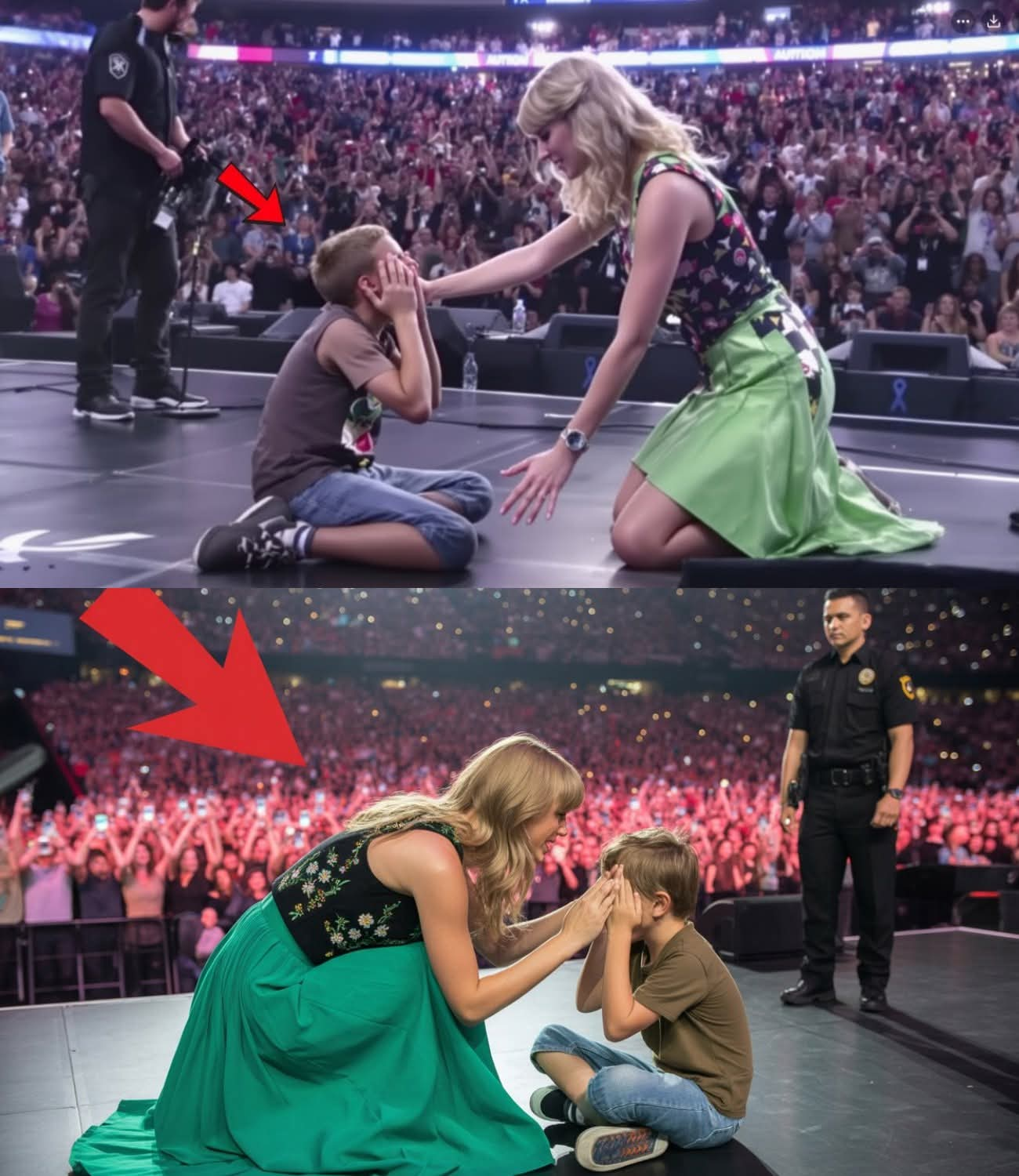CELEBRITY
When 8-year-old Alex Thompson had an autistic meltdown due to the noise and lights of the concert, security tried to remove him. But Taylor Swift put down her microphone and said, “Wait,” she went to Alex and sat quietly beside him.

When 8-year-old Alex Thompson had an autistic meltdown due to the noise and lights of the concert, security tried to remove him. But Taylor Swift put down her microphone and said, “Wait,” she went to Alex and sat quietly beside him. “Let’s breathe together,” she said in a soft voice. At that moment, 75,000 people fell silent and showed respect for Alex’s world.
What Taylor did was more than just a gesture. It was the most beautiful example of autism awareness, and it changed everything that night.
It was a warm summer evening at Metife Stadium and the Aerys tour was in full swing. Among the 75,000 screaming fans was 8-year-old Alex Thompson who sat in the accessible seating section with his parents, David and Maria.
Alex had been looking forward to this concert for months. But no one could have predicted how the overwhelming sensory experience would affect him. Alex had been diagnosed with autism at the age of four. He was a bright, loving child with an incredible memory for song lyrics and a deep passion for Taylor Swift’s music.
At home, he could sing every word to every song, often spending hours listening to Taylor’s albums with noise- cancelling headphones that helped him manage his sensory sensitivities.

But being at a live concert was different from listening at home. The stadium was filled with lights that flashed and changed colors constantly, creating a visual overload that Alex hadn’t experienced before.
The sound system designed to reach every corner of the massive venue was far louder than anything he was used to.
The crowd of 75,000 people created a cacophony of voices, cheers, and movement that seemed to press in on him from all sides.
For the first half of the concert, Alex had managed reasonably well. His parents had prepared him as much as possible, bringing his noiseancelling headphones and choosing seats that were slightly removed from the most crowded sections.
Alex had been singing along, stmming happily by flapping his hands during his favorite songs, and seemed to be genuinely enjoying the experience.
But during 22, when the confetti cannons exploded and thousands of phone flashlights began strobing in rhythm with the music, Alex’s sensory system became completely overwhelmed.
It started with him covering his ears and closing his eyes tightly, trying to block out the assault of stimuli.
His parents immediately recognized the signs of an impending meltdown and tried to help him regulate, offering him his weighted lap pad and speaking to him in calm, reassuring voices.
But the sensory overload was too intense. Alex began to rock back and forth, his breathing becoming rapid and shallow. Then he started crying.
Not the typical crying of an upset child, but the deep distressed crying that comes from a nervous system in complete overwhelm. “It’s too much. It’s too much.” Alex cried out, his voice cutting through the music. “I can’t. I can’t.












